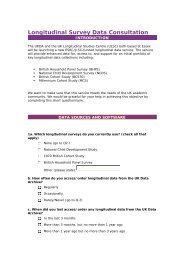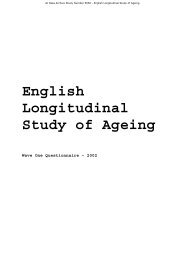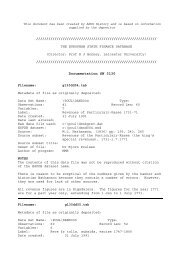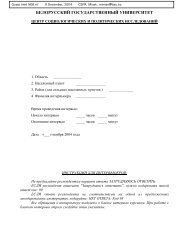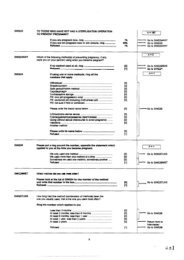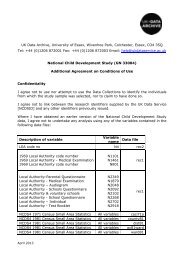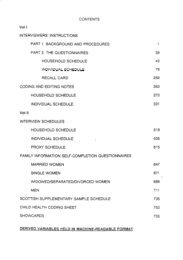The Seven Principles of Public Life - ESDS
The Seven Principles of Public Life - ESDS
The Seven Principles of Public Life - ESDS
You also want an ePaper? Increase the reach of your titles
YUMPU automatically turns print PDFs into web optimized ePapers that Google loves.
Where an attribute has been drawn from priorities identified in the Stage 1 research, it is<br />
shown in italics.<br />
Table 4 Importance <strong>of</strong> specific behavioural attributes for MPs and government ministers<br />
Base: All respondents (1,097 for importance; 1,095 for three most important)<br />
Note: Attributes drawn from priorities identified in the<br />
Stage 1 research, rather than being based on the <strong>Seven</strong><br />
<strong>Principles</strong>, are shown in italics<br />
<strong>The</strong>y should not take bribes (Selflessness/Integrity)<br />
<strong>The</strong>y should tell the truth<br />
<strong>The</strong>y should make sure that public money is used<br />
wisely<br />
<strong>The</strong>y should not use their power for their own<br />
personal gain (Selflessness/Objectivity)<br />
<strong>The</strong>y should be dedicated to doing a good job for the<br />
public (Selflessness)<br />
<strong>The</strong>y should be competent at their jobs<br />
<strong>The</strong>y should be in touch with what the general public<br />
thinks is important<br />
<strong>The</strong>y should own up when they make mistakes<br />
(Accountability/Openness)<br />
<strong>The</strong>y should explain the reasons for their actions and<br />
decisions (Accountability/Openness)<br />
<strong>The</strong>y should set a good example for others in their<br />
private lives<br />
As noted above, nine <strong>of</strong> the ten attributes were<br />
rated ‘extremely’ or ‘very’ important by more than<br />
80 per cent <strong>of</strong> respondents. <strong>The</strong> exception – that<br />
MPs and government ministers should set a good<br />
example for others in their private lives – was<br />
nonetheless regarded as ‘extremely’ or ‘very’<br />
important by 60 per cent <strong>of</strong> respondents and at<br />
least ‘quite important’ by 86 per cent.<br />
Rated as<br />
‘Extremely<br />
Important’<br />
Rated as one <strong>of</strong> the three<br />
most important attributes<br />
% %<br />
88 46<br />
75 53<br />
73 43<br />
72 34<br />
64 37<br />
58 23<br />
56 28<br />
55 17<br />
43 12<br />
31 5<br />
(Tables 30 and 31)<br />
Private behaviour emerges as a<br />
lower priority for the public<br />
when compared with public<br />
conduct, but is still regarded by<br />
most people as being important<br />
for both national politicians and<br />
appointed <strong>of</strong>ficials.<br />
40 BMRB International Report: Survey <strong>of</strong> public attitudes towards conduct in public life





